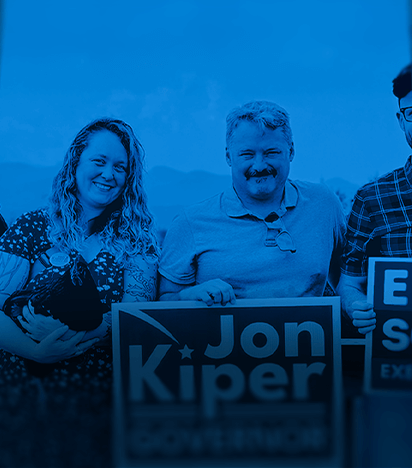
Jon’s Platform

Jon’s Platform
The Common Sense Platform
New Hampshire Needs.
New Hampshire should be a place where families can afford to stay, work, and thrive. Right now, too many of our neighbors are being pushed out by high housing costs and rising property taxes.
I’m not here to play party games. New Hampshire deserves a governor who answers to its people, not to big donors or political insiders.
We can build a future where housing is affordable, schools are funded fairly, and freedom truly means the ability to live and work in the place you call home.
We Work Hard for New Hampshire. New Hampshire Should Work for us.
New Hampshire is a place that rewards hard work, but too many families and small businesses are squeezed by rules that favor insiders. The pressure shows up in housing that is out of reach, in a property tax system that strains working towns, and in childcare costs that keep parents out of the workforce. These are structural problems, not passing headlines, and they require structural fixes.
As governor, Jon’s focus is clear. Build homes people can afford, at scale and in the places jobs already exist. Fix the way we fund local education, so a child’s school is not defined by a town’s property base and so homeowners are not punished for living in the wrong ZIP code. Make childcare affordable and available, so parents can work and employers can hire.
Clean government practices will anchor this work. Open books, strong conflict-of-interest rules, and no pay-to-play culture. Decisions should be made in the open, with clear metrics, and with outcomes that residents can see in their budgets and on their streets.
A people-first economy follows from these choices. When housing is attainable, when schools are fairly funded, and when childcare is accessible, small businesses can grow, main streets stay alive, and young people choose to build their lives here. That is how New Hampshire works for the people who keep it running.
-
Education benefits the entire state, not just individual towns. But the current system overburdens local taxpayers and discourages affordable housing projects.
Education extends beyond town lines. For example, workers in Newington often grew up in surrounding towns whose taxpayers funded their schooling. Education produces a workforce for the state’s economy, not just one community.
Local property taxes are regressive. Poorer towns face sky-high rates, while affluent towns collect the same dollars with much lower tax burdens. This entrenches inequality across the state.
The myth of “no income or sales tax.” New Hampshire already collects targeted sales and income taxes: the Rooms & Meals Tax, the Business Enterprise Tax, and the Business Profits Tax. Restructuring these existing taxes is more honest and more fair.
Shift the burden. Move school funding to a statewide pool supported by existing business taxes, reducing reliance on local property taxes. Small businesses would be taxed based on profits rather than property value, while families see direct relief on their tax bills.
-
Housing costs are the number one driver of inflation in New Hampshire. Raising wages alone cannot fix this problem—without more supply, prices will always chase incomes upward.
Expand state housing capacity. Increase funding for the NH Housing Finance Authority so it can finance more affordable units.
Offer developer incentives. Use tax credits to encourage construction of workforce and starter homes.
Reform zoning laws. Push for higher-density and mixed-income housing in the areas where it is most needed, overcoming local opposition that blocks new units.
Provide humane temporary solutions. Establish supervised campgrounds on state-owned land with sanitation, clean water, and security so unhoused people are not left in unsafe conditions.
Develop permanent alternatives. Invest in tiny house villages that provide dignified housing along with healthcare access, social services, and job resources—pathways to long-term stability.
-
Every surrounding state has legalized cannabis. New Hampshire remains an island of prohibition, losing both revenue and control while residents cross state lines to buy legally elsewhere.
Adopt a state-run model. Establish state-operated dispensaries under strict regulation to ensure safety and oversight.
Generate new revenue. Implement comprehensive taxation on cannabis sales and earmark funds specifically for affordable housing programs.
Fund direct housing initiatives. Use cannabis revenue to support rental assistance, low-income housing development, housing vouchers, and partnerships with nonprofits.
Keep dollars in-state. Residents are already buying cannabis—New Hampshire should keep that money here and put it to work solving the housing crisis.
-
Healthcare decisions are deeply personal and should not be dictated by politicians. Whether reproductive rights, medical cannabis, or gender-affirming care, government interference undermines New Hampshire’s tradition of freedom.
Preserve reproductive and trans rights. Government has no place restricting individuals’ healthcare choices.
Respect privacy. Patients deserve to keep medical details confidential, and providers need the trust of their patients to give appropriate care.
Reject one-size-fits-all mandates. Overregulation raises costs, slows access, and forces generic solutions that do not fit individual needs.
Uphold autonomy. Patients—not lawmakers—should make final healthcare decisions, in line with their own values and circumstances.
-
Just as Big Tobacco and Purdue Pharma were held responsible for public harm, corporations that knowingly fueled climate change must also pay. New Hampshire cannot wait for Washington to act.
Make polluters pay. Levy stricter taxes on pollution and greenhouse gas emissions and pursue litigation against corporations that contributed to climate damage.
Invest in clean energy. Expand solar, wind, and other renewable power with tax incentives for homeowners and businesses.
Cut energy waste. Create and expand programs that fund efficiency upgrades for homes and small businesses.
Transform infrastructure. Invest in public transportation, bike paths, and pedestrian networks to reduce car dependence and lower emissions.
Divert waste. Support curbside composting programs that reduce methane emissions, lower landfill costs, and supply farmers with compost as a soil amendment.
-
Paying legislators $100 per year ensures that only the wealthy and retired can afford to serve, leaving government unrepresentative of the people it claims to represent.
Reduce barriers to entry. A fair salary would allow working people—not just the financially secure—to run for office.
Broaden representation. A legislature drawn from diverse socioeconomic backgrounds would produce policy that reflects the realities of everyday Granite Staters.
Reduce conflicts of interest. Fair pay means legislators do not need to depend on outside jobs, which often create competing loyalties.
Improve governance. A paid body allows more time, commitment, and institutional knowledge, while reducing burnout and turnover.
Signal value. Paying nothing sends the message that governance is not important. Paying legislators acknowledges the serious work required to represent the people.
Time To Get To Work
We have the tools, we need the people. Join the campaign, help organize your town, and move the numbers that matter.
The first step is action. Join us to make it happen.

Stay Connected. Stay Informed.
Be the first to hear campaign updates, upcoming events, and ways you can get involved in building a stronger New Hampshire.


